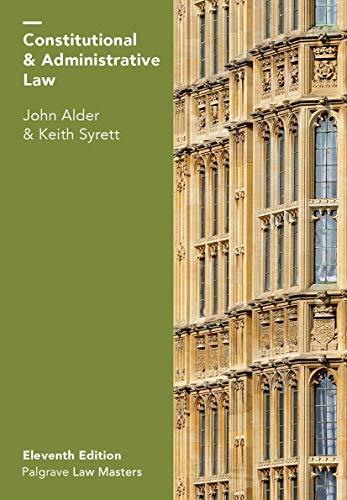Question
1. Explain why it is highly unlikely that a party in civil proceedings would want to call the opposing party as a witness. Is the
1. Explain why it is highly unlikely that a party in civil proceedings would want to call the opposing party as a witness. Is the situation different in a criminal case?
2. Joe came home late on the night of March 16. His wife woke up in time to see him washing the blood off his shirt and his hands. She asked him what was going on and he replied, "Jimmy and I got into a fight with Mickey. Mickey pulled a knife. I had to defend myself." Joe's wife remembers seeing a note on the kitchen table about a week earlier. The note was from Mickey to Joe and it said, "If I were you Joe, I would not come anywhere near me. You are my enemy."
Joe and Jimmy are later jointly charged with assault causing grievous bodily harm in relation to the fight of March 16.
(a) Can Joe call his wife as a witness?
(b) Can the prosecutor call Joe as a witness against Jimmy?
(c) Can Jimmy call Joe's wife as a witness?
(d) If Joe and his wife are divorced between March 16 and the trial, does it make any difference to the answers in (a), (b) or (c)?
3. Interest in proceedings, both criminal and civil no longer renders a person incompetent as a witness. How can the interest of a party continue to be important in relation to the proceedings? Devise a hypothetical example to illustrate your answer.
4. One of the issues that Law Reform Commissions could usefully look at is the issue of compellability in relation to a spouse. Prepare to take a position in relation to the following questions.
(a) Should a spouse be compellable as a witness for the prosecution in all cases?
(b) Should a former spouse be compellable as a witness for the prosecution?
(c) Should the definition of "spouse" be changed from its present meaning in relation to the issue of competence and compellability? Why or why not?
5. If a party calls a witness to give evidence but the witness refuses to take an oath or make an affirmation, what, if anything can the party do?
6. If you are representing a party in a criminal charge and the prosecution calls the 8 year old child of the accused as a witness against your client, what evidential issues arise in relation to competence and compellability? Do you need to make any assumptions before addressing this question?
Step by Step Solution
There are 3 Steps involved in it
Step: 1

Get Instant Access to Expert-Tailored Solutions
See step-by-step solutions with expert insights and AI powered tools for academic success
Step: 2

Step: 3

Ace Your Homework with AI
Get the answers you need in no time with our AI-driven, step-by-step assistance
Get Started


